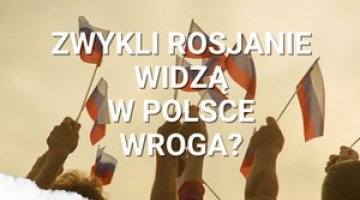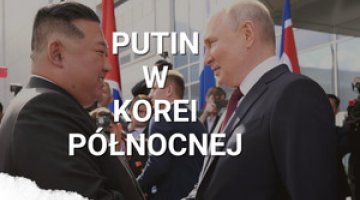An apparent liberalisation: the Russian government responds to the protests
Further demonstrations against voting fraud during the recent parliamentary elections took place in Russia on 24 December; the largest rally was in Moscow, where tens of thousands people gathered. Faced with increasing social mobilisation before the presidential election in March, the government has sought to calm the mood of protest and to impose discipline on the state administration, within which voices criticising Vladimir Putin have begun to appear. The president and government have devised a package of legislative changes, the declared aim of which is the democratisation of the elections and the party scene. However, these changes will be spread out over time, and their consequences will heavily depend on how they are implemented. In fact, the Kremlin does not seem willing to carry out any real reform of the system of government, as evidenced by its actions against the protesters (attempts have been made to provoke divisions among them and discredit the movement’s leaders), as well as by the nominations to key posts of Putin’s trusted colleagues, who are no friends of political liberalisation.
The ‘new discontented’
The latest protest against electoral fraud on December 24 was a success for the ‘discontented’; demonstrations were held in many Russian cities, and the largest rally in central Moscow was, according to various estimates, attended by between 30,000 and 100,000 participants (more than in the past). The protesters, despite their considerable differences, operated very efficiently; an organising committee composed of respected public figures was selected, the organisation of the rally was paid for by contributions from Internet users, and the rally itself was organised in an attractive way, with different facilities provided. The protest movement is undergoing a clear evolution: the previously rather diffuse dissatisfaction which had been evident in online discussions is taking on the form of a social movement with a horizontal, decentralised structure, while still being fairly well coordinated. A cross-section of the demonstrators and their behaviour during the rallies shows that they principally come from the Russian middle class, the most active part of society which is able to formulate rational political demands, but is not interested in destabilising the situation. For the present government, this is a new and difficult opponent – excellently organised, creative, and not readily susceptible to government rhetoric.
The protesters have been mobilised by the imminence of the presidential election (4 March 2012); many of them have declared their commitment to monitor the elections, and are conducting Internet campaigns calling on people to vote for any candidate except Putin in the election. This mobilisation will probably weaken after the elections, which in all probability Putin will win. At the same time, the social activity will change its form; the movement will be institutionalised, and will thereupon need to develop a programme of further action; this will inevitably lead to the division of the protesters into various parties and groups offering different solutions. At the same time, though, the deeper causes of the current dissatisfaction will remain – the conflict of interests between the ruling elite, which seeks to maintain its control over political and economic life, and the growing middle class that is interested in increasing competition and pluralism in public life in Russia.
The electoral dilemma
The protesters’ continuing mobilisation makes it increasingly difficult to reconcile the government’s two electoral priorities: to ensure the undisputed victory of Vladimir Putin in the first round, which would strengthen his political position; and at the same time to avoid any major controversy or accusations of rigging the elections, which could weaken his legitimacy.
Putin remains the most popular politician in Russia, but his poll numbers are falling – the December polls show that those willing to vote for him number between 36% (according to the Levada Center) to 44-45% (the Obshchestvennoye Mnienie Foundation and WCIOM). Some undecided voters, whose number varies from above 10% to about 30%, could also vote for him. On the other hand, the scale of the negative social mobilisation, including the appeal to vote for any candidate other than Putin, increases the likelihood that a large part of the votes will go to the other candidates – Gennady Zyuganov, the Communist leader; the representative of A Just Russia, Sergei Mironov; the leader of Yabloko, Grigory Yavlinsky; or the billionaire Mikhail Prokhorov. A victory for the current Prime Minister in the first round, while probable, is not a foregone conclusion. This increases the likelihood that the government will interfere in the election. Another detail that makes the interference more probable is the fact that Putin’s election campaign will be led by Vyacheslav Volodin, a long-time senior figure in United Russia, the ‘party of power’. He was one of the campaign’s main coordinators before the recent parliamentary elections, during which numerous incidents of vote-rigging took place.
Cosmetic liberalisation
To soothe social discontent, the government has taken a number of legislative initiatives, the declared aim of which is to democratise the electoral law and the legislation governing the party scene. In a speech on 22 December, President Dmitri Medvedev ordered the government to devise a package of appropriate amendments; most of them were brought to parliament by the end of December. These are intended to simplify the registration of parties (the required number of party members has been reduced from 45,000 to 500); the requirement to collect signatures to register a party in parliamentary and regional government elections is to be abolished; and the number of signatures required to register candidates in presidential elections has been greatly reduced (from 2 million to 300,000 for independent candidates, and to 100,000 for those running for extra-parliamentary parties). The president also made vague statements about a return to the direct election of governors, transferring some federal powers to the regional centres, and increasing pluralism in the media. The liberalisation proposed by the government is basically cosmetic in nature, and is designed not so much to reform the system of power as to calm the public mood. The changes initiated will only come into effect after the presidential elections, and their consequences will heavily depend on how they are implemented (previously, on pretexts that the formalities had not been observed, the Ministry of Justice refused even to register those opposition parties which had met the strict statutory criteria).
Pre-election practices: the government versus the opposition
These legislative initiatives stand in contrast to the government’s tangible actions against the opposition, which show that they have no desire to make any real concessions to the protesters or start a serious dialogue with them. The government is primarily seeking to discredit the protesters and provoke divisions among their ranks. In his statements, Putin has derided or played down the social discontent, and suggested that the protesters are being inspired from abroad. Efforts have also been made to bring the protesters into conflict, such as publishing wiretaps of opposition figures’ telephone conversations. The plan for the billionaire Mikhail Prokhorov, who has professed liberal views, to run for president, is aimed at encouraging the fragmentation of the opposition’s electorate in the presidential elections. Prokhorov is clearly operating at the government’s inspiration: he has been registered as a candidate, even though media reports state that he submitted his application after the deadline. The same intention seems to lie behind the announcements that new liberal parties are to be formed under the auspices respectively of Aleksei Kudrin, a former Finance Minister, and Boris Titov, head of the Dyelovaya Rossiya association for medium-size business, who has already played a role in the Kremlin’s political projects.
A reshuffle in the ruling camp
In recent weeks there have also been many personnel changes in key positions in the state. The nature of these changes suggests that Vladimir Putin, who is still the primary decision-maker, is placing his bets on trusted people, both in view of the upcoming elections and his own presidency. The new Head of the Presidential Administration is Sergei Ivanov, a former deputy prime minister supervising the military-industrial complex. His new deputy is Vyacheslav Volodin, formerly head of PM Putin’s office, who will lead Putin's election campaign. The new chairman of the Russian parliament will be the former Head of the Presidential Administration, Sergei Naryshkin; he replaces Boris Gryzlov, notorious for his attitude reflected in his famous phrase: “Parliament is no place for discussions”. All three of these politicians enjoy Putin’s trust; they support maintaining the current system of government, and are seen as disinclined to make compromises with the protesters.
Another objective of this reshuffle is to prevent stirrings of discontent within the ranks of the state administration. Those officials who Putin could see as potential troublemakers, and who could take advantage of a difficult political situation, have been appointed to positions where they can manage substantial amounts of money. The former deputy head of the presidential administration, Vladislav Surkov, who has been called the government’s main political ideologist, has been named deputy PM responsible for the modernisation and implementation of new technologies. Russia’s representative to NATO, Dmitry Rogozin, a charismatic politician with nationalist views, has been appointed deputy prime minister for the military-industrial complex. Both Surkov and Rogozin have declared their loyalty to Putin, but they do not necessarily enjoy his full confidence; some of their actions in the past have shown that they aspire to play their own political games. By offering both politicians lucrative positions, Putin intends to reduce their motivation to play off any political instability. This is important in a situation when dissatisfaction with plans to return Putin to the Kremlin has been expressed not only by the opposition and public groups, but also by increasingly large numbers of (hitherto loyal) representatives of the intellectual elite, the media and the arts, and even some representatives of the Orthodox Church and the state administration; Arkady Dvorkovich, assistant to President Medvedev and a former deputy prime minister, and Finance Minister Aleksei Kudrin have spoken about this in public.
Jadwiga Rogoża, with additional research by Katarzyna Jarzyńska




